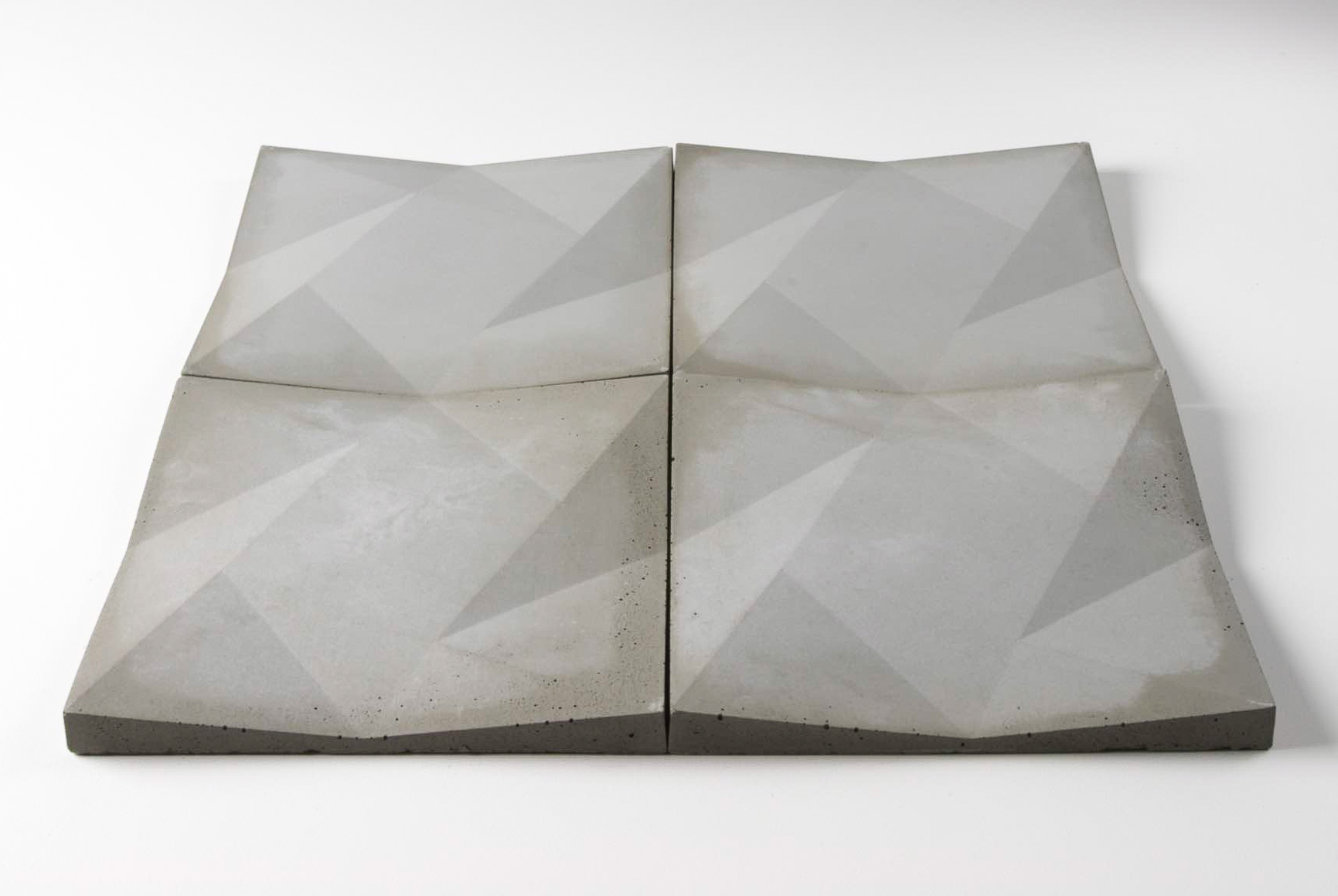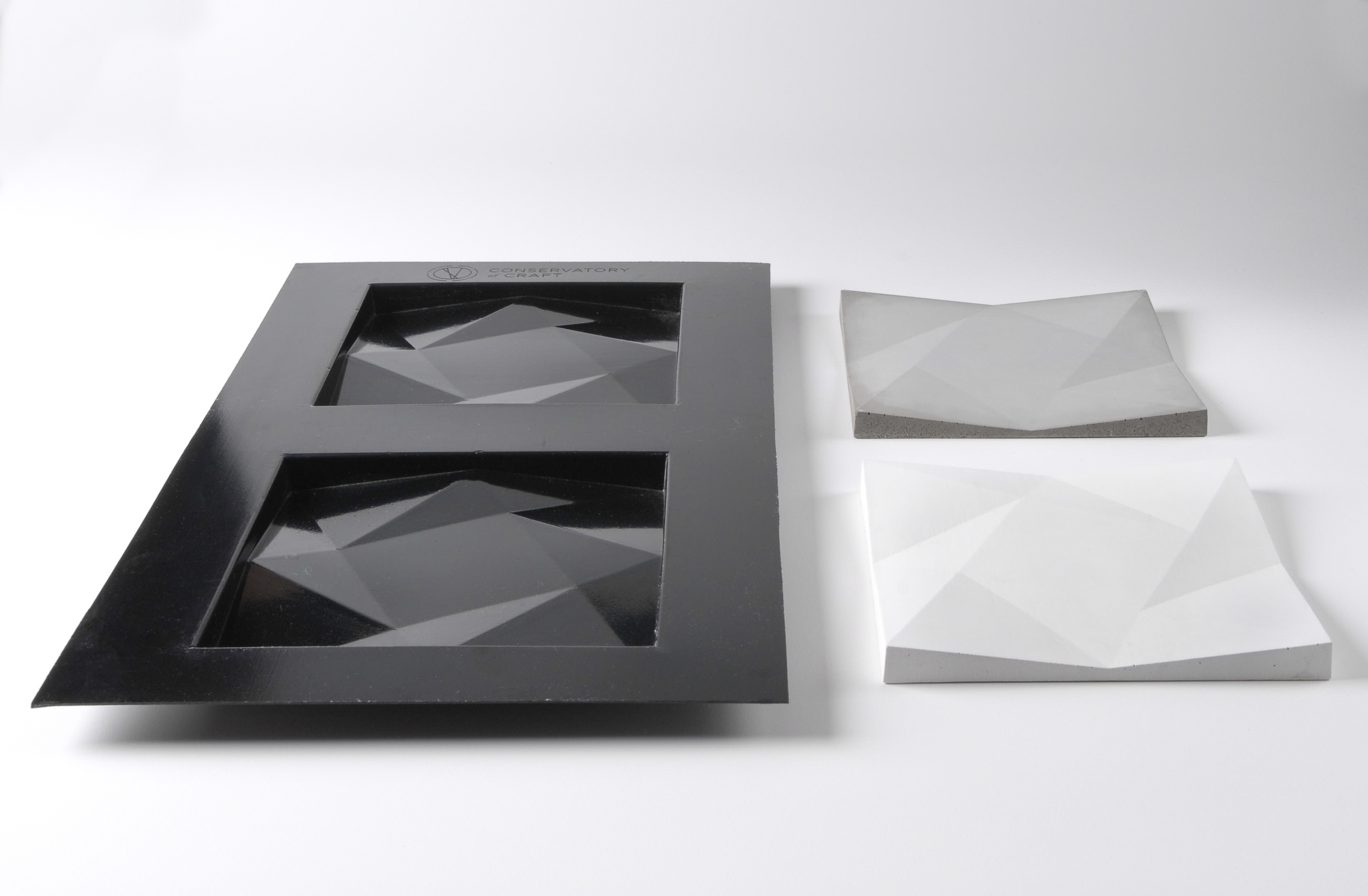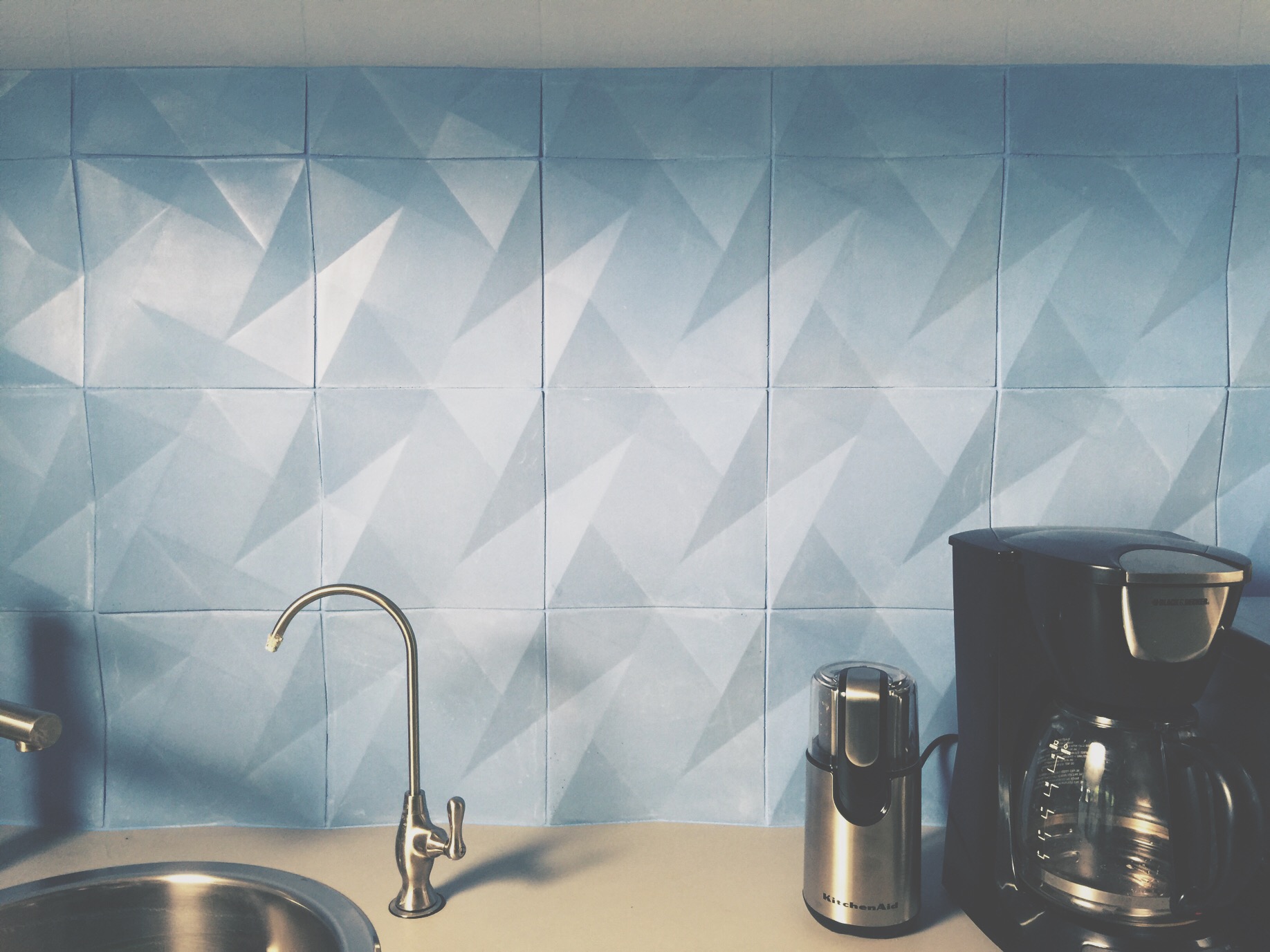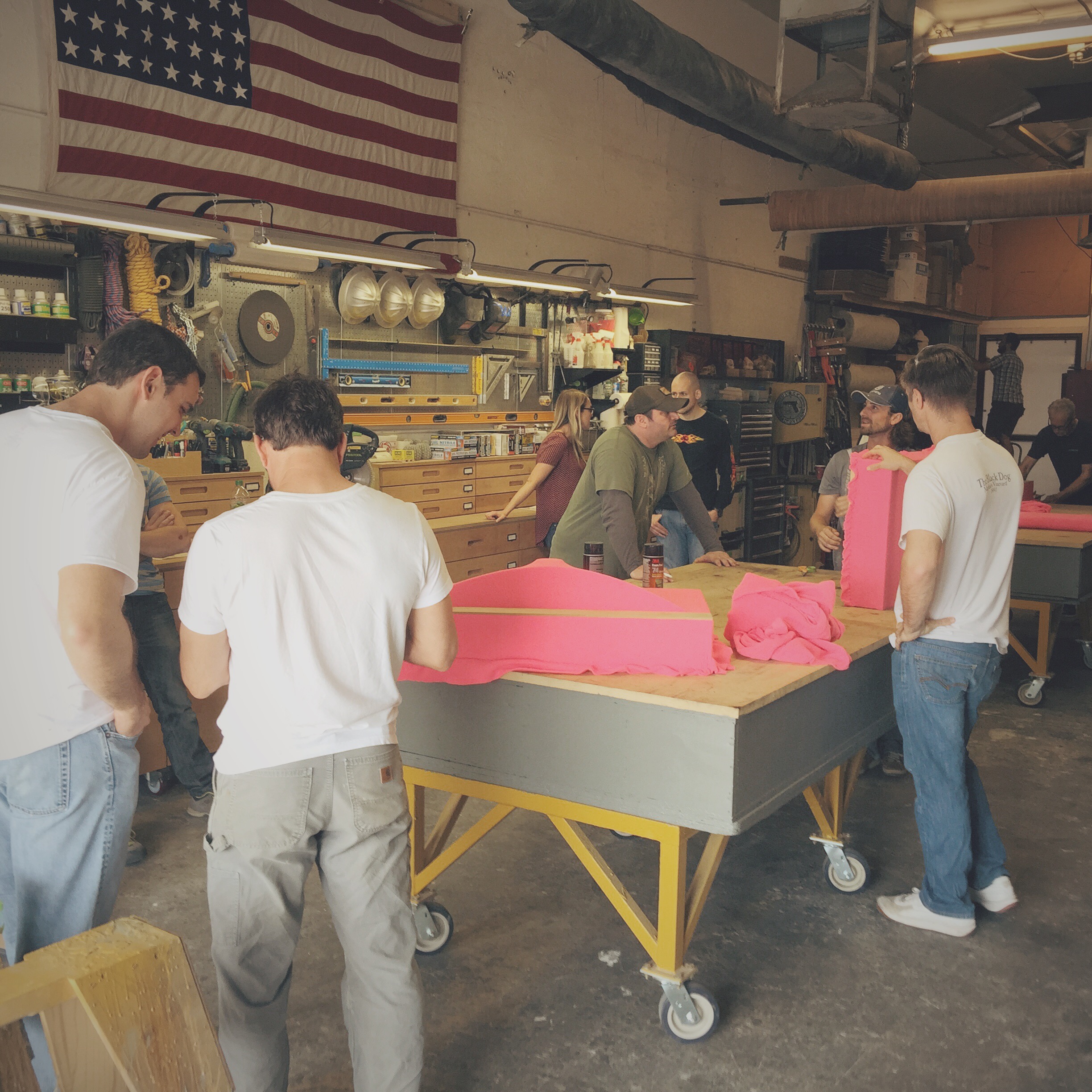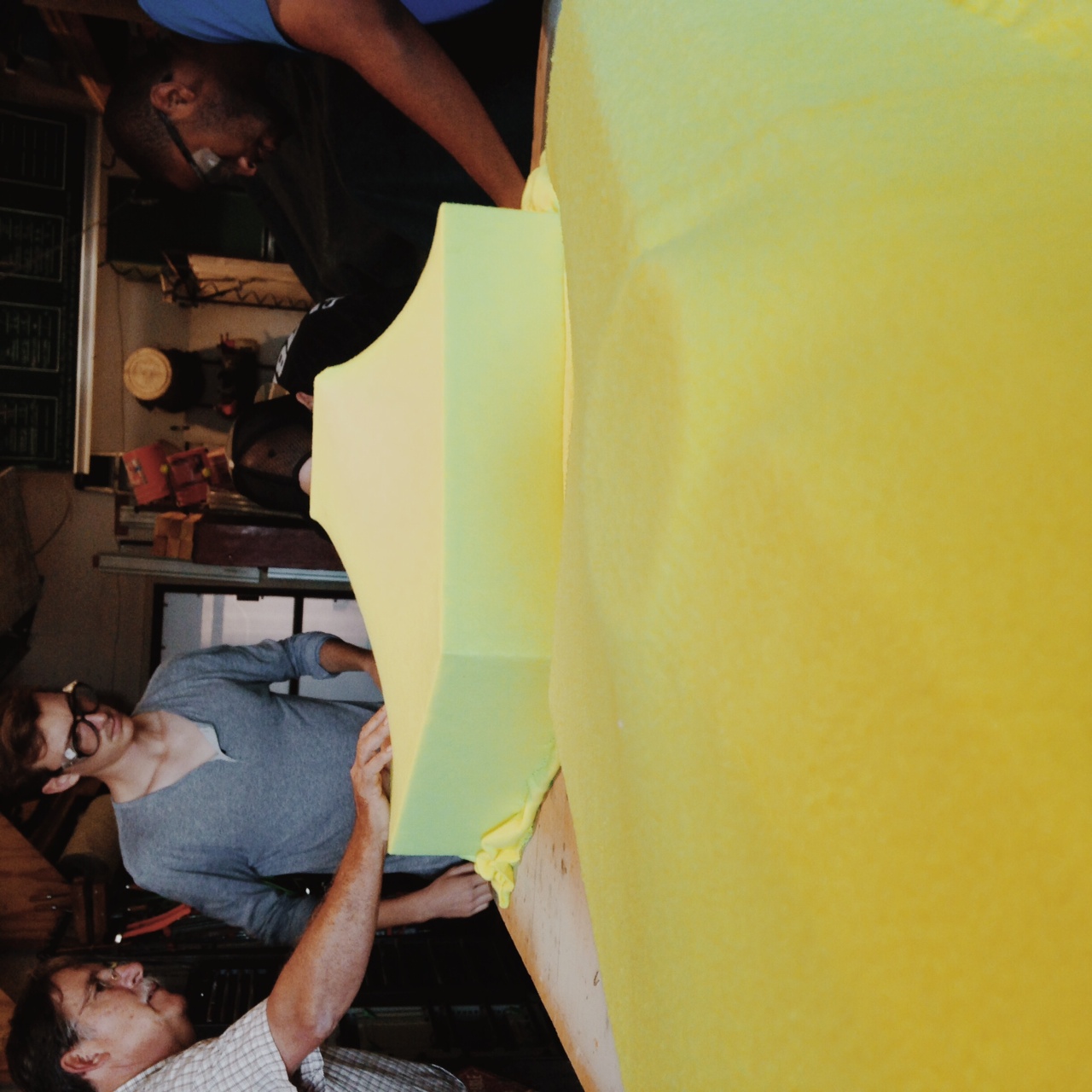Up until now the molds for making high-end 3-dimensional concrete wall tile were out of reach of most DIY'ers and concrete crafters. That is, until now! Our Geometric Concrete Tile Molds are now available via our online store. Check them out and order yours today!
The July Workshops are 53% Full!
We announced the July workshops exactly a week ago today, and in that short amount of time they are already more than half filled - 53% to be exact! In more than a decade of teaching sold-out workshops we've never had classes fill up this quickly, it is unprecedented!
If you are interested in learning the following:
- Concrete Sinks
- Concrete Countertops
- Concrete Tile
- Concrete Furniture
- Rustic Concrete Finishes
- GFRC
- Furniture Design
Then don't wait, enroll in your workshop(s) today! This will be the last training event that we conduct in Phoenix, we hope to see you there!
The January 2016 Concrete Sink, Countertop and Fabric-Forming Workshops are Filling-Up FAST!
LEARN CONCRETE!
I have been hand-crafting high-end concrete sinks, countertops and furniture for over a decade, and still to this day every morning when I de-mold a piece it is like Christmas morning. It doesn't matter if it is a project where I am making 1 of something or 50, the excitement is the same. That's a great feeling that all humans should experience, and our training can give you the skills and confidence required to tackle projects for your home or business. We have classes that teach:
Concrete Countertops
Concrete Sinks
Concrete Furniture
Furniture Design
Fabric-Forming
This Christmas give yourself or your significant other the gift of knowledge. CLICK HERE to learn more about our "All-In Workshop Package." We hope to see you in a January Class!
The next 1.5 Day Furniture Design Workshop has been scheduled for September 26th and 27th!
With the Maker Movement picking up steam we have seen a tremendous increase in requests for dates for the next 1.5 Day Furniture Design Workshop. We have set it for September 26th-27th, 2015. This is the weekend after our 2.5 Day Fabric-Forming + GFRC Workshop. A popular request is to run these classes back-to-back to save on travel expenses, so here is your opportunity to attend both in a little more than a weeks time!
Here are a few photos from the June Furniture Design Workshop:
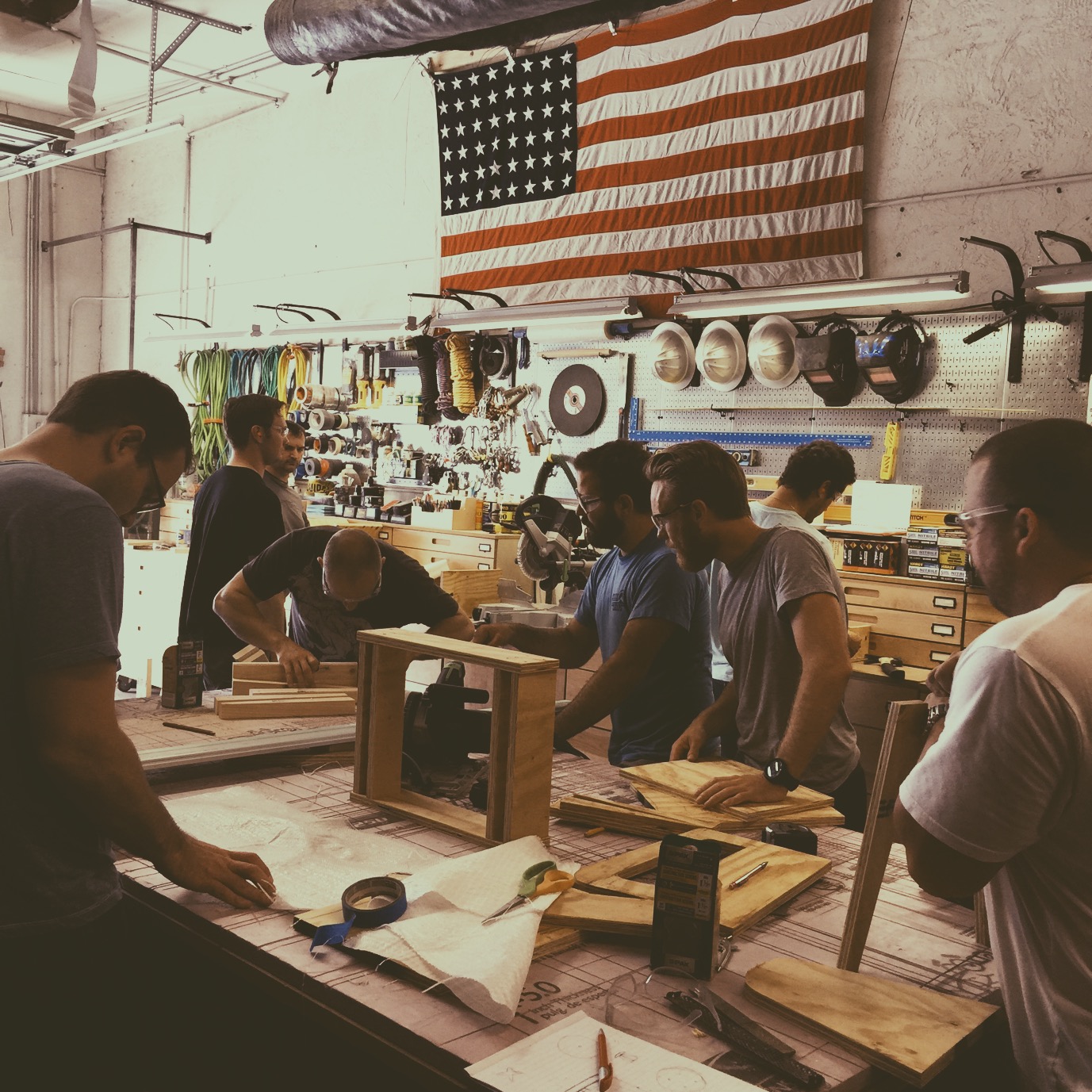

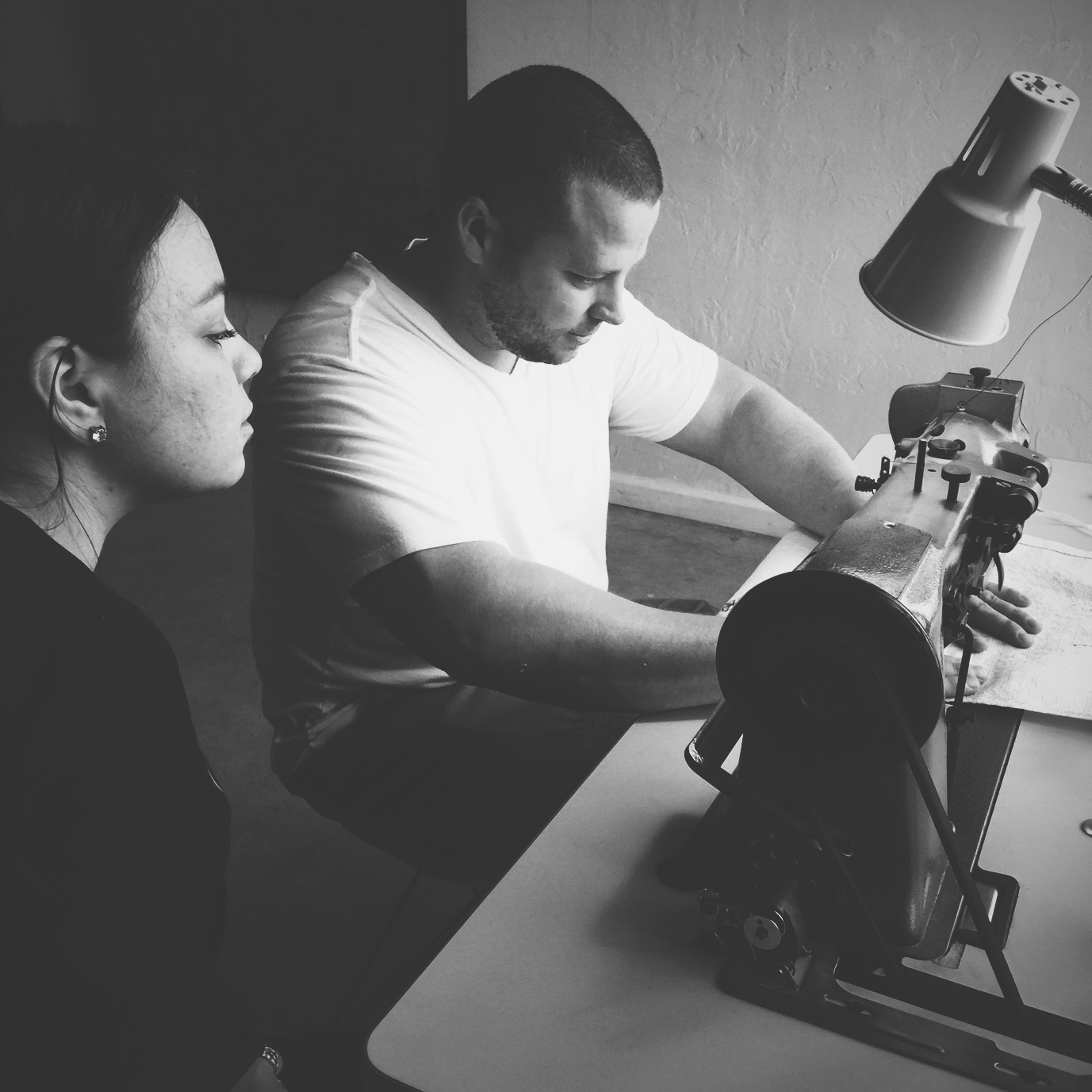
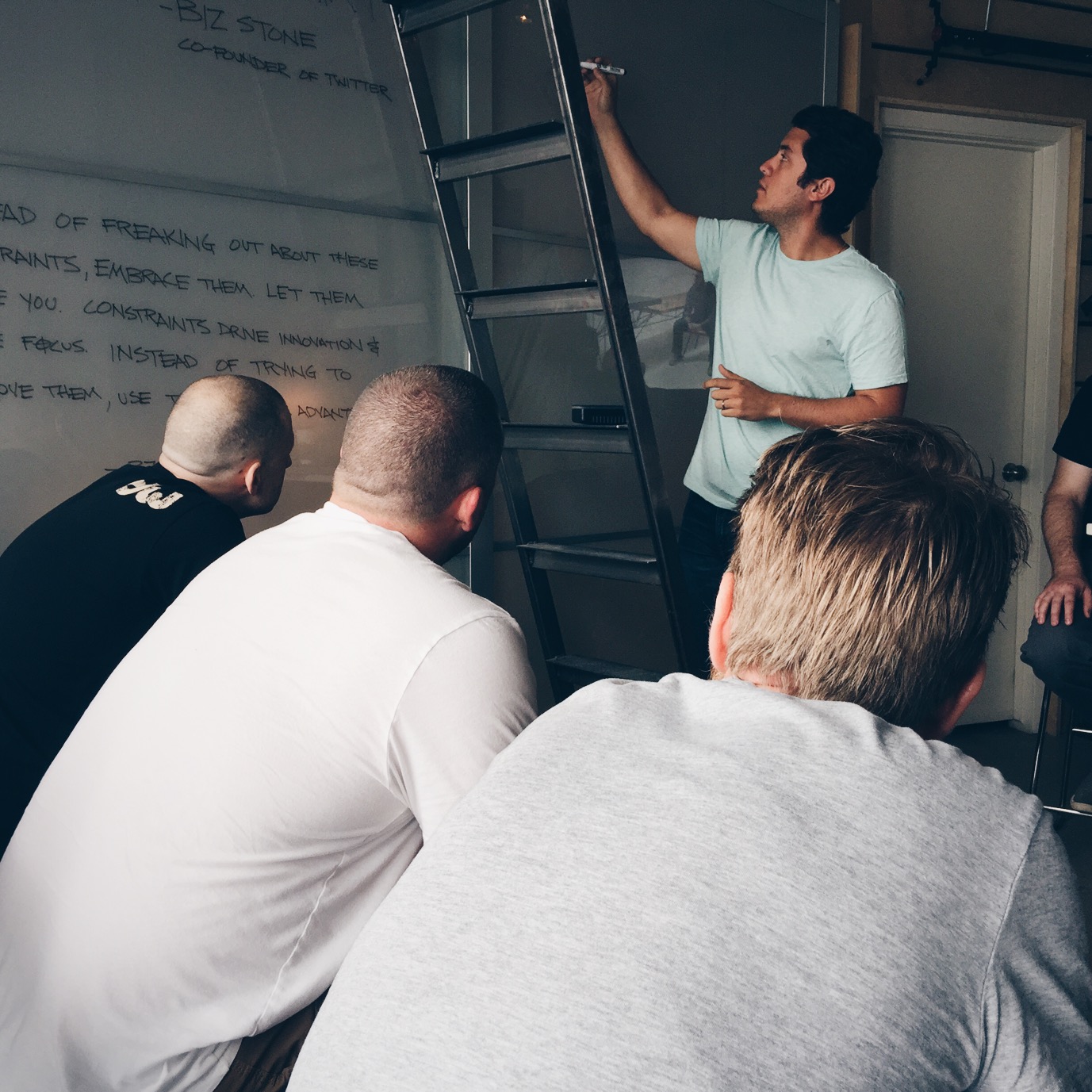
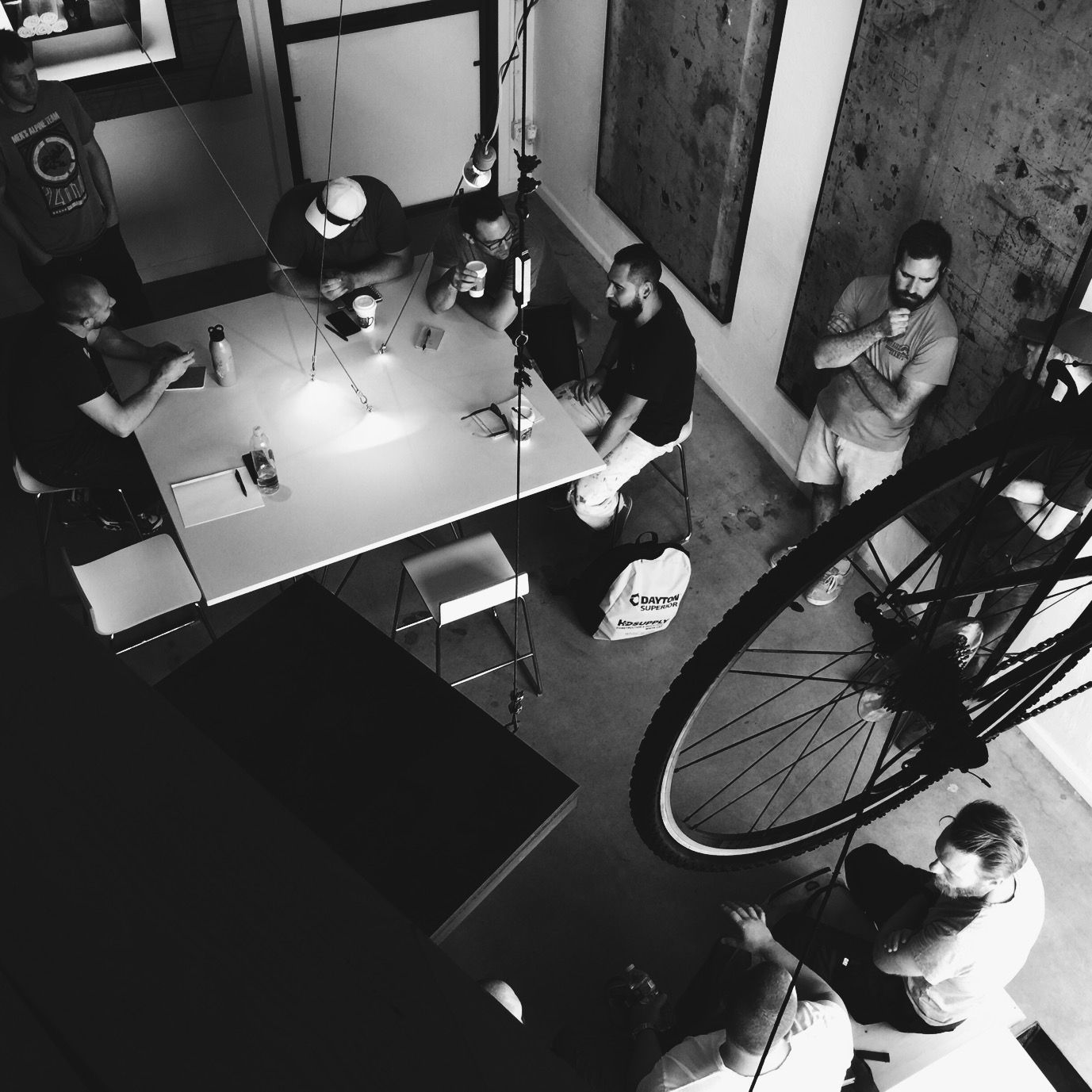
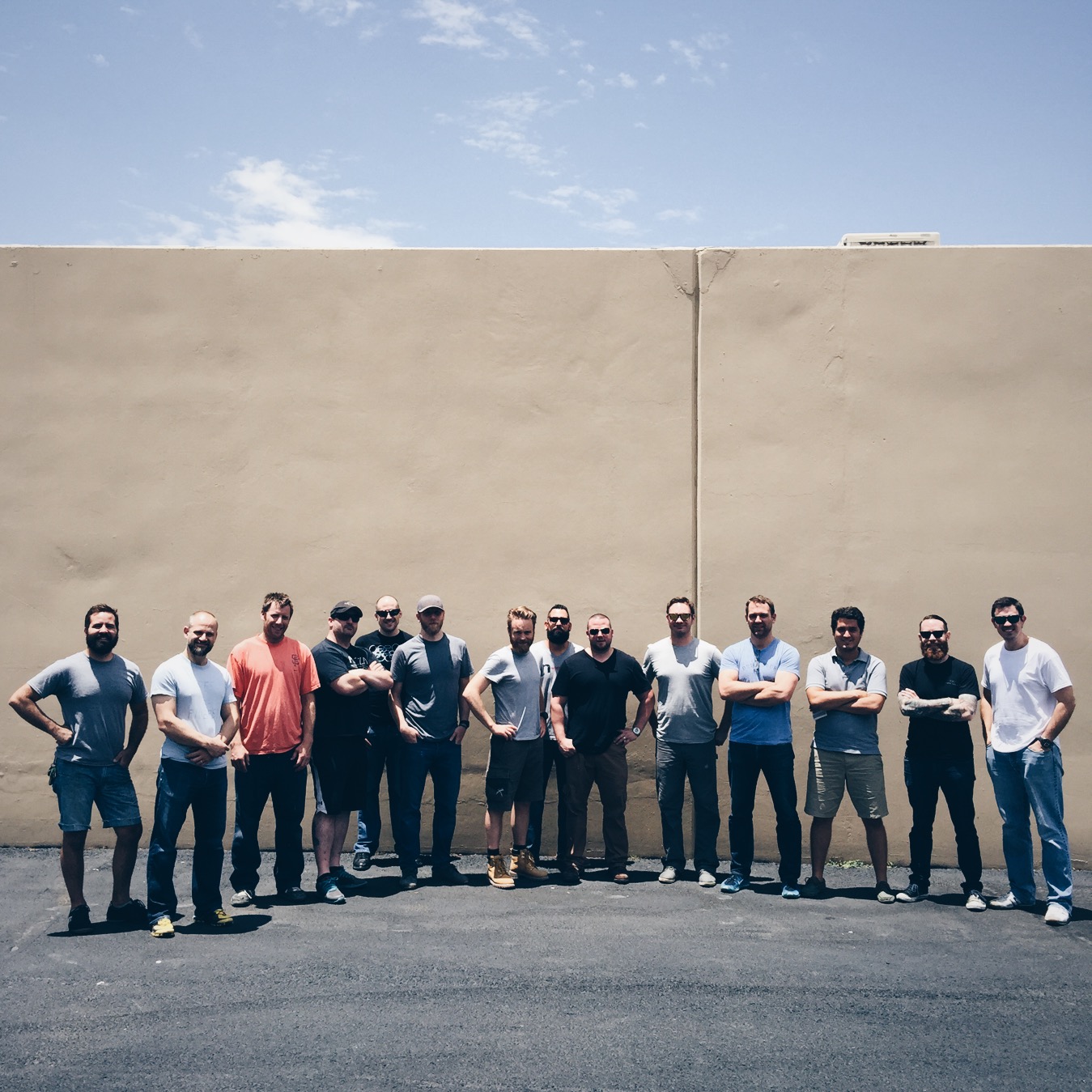
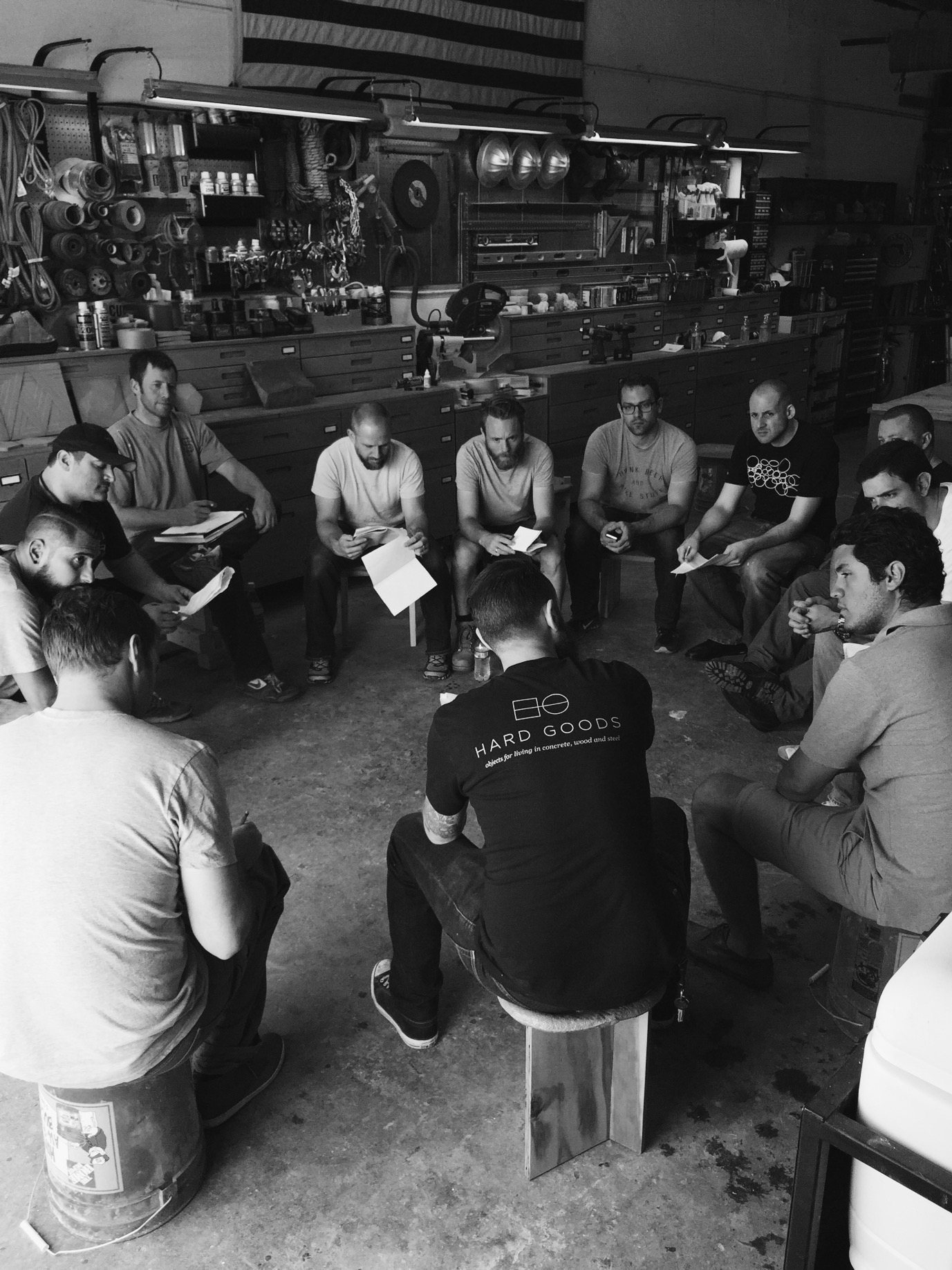
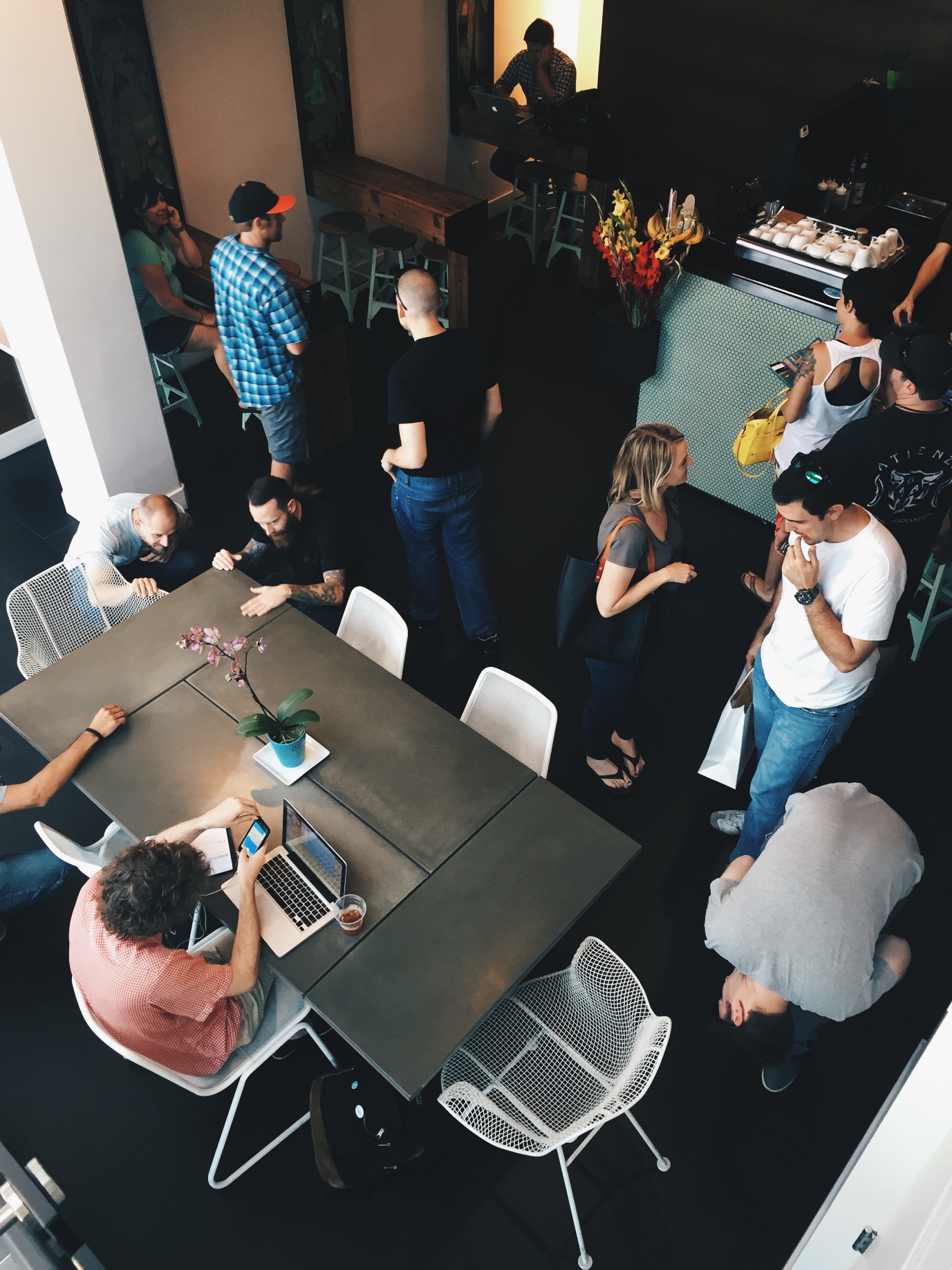
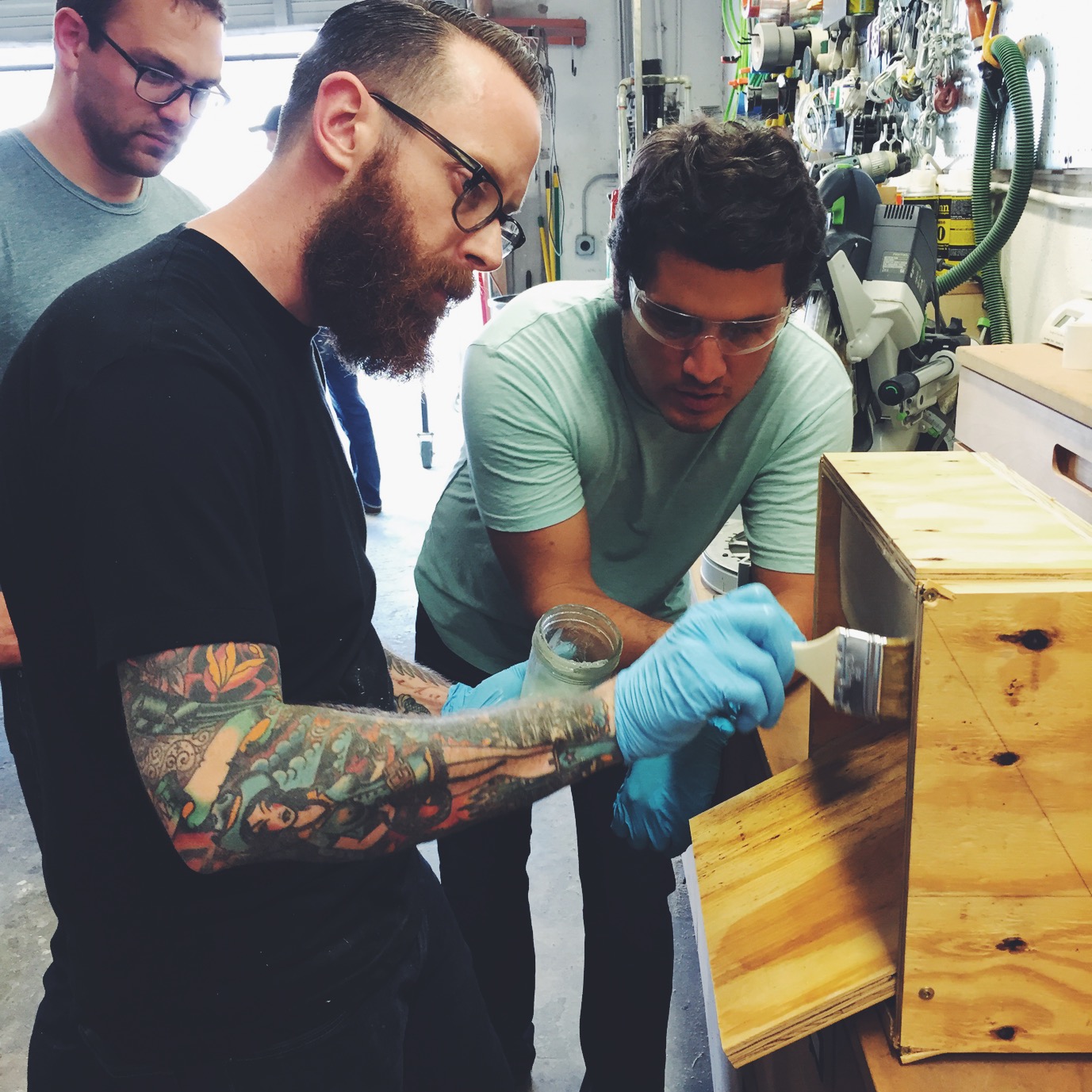
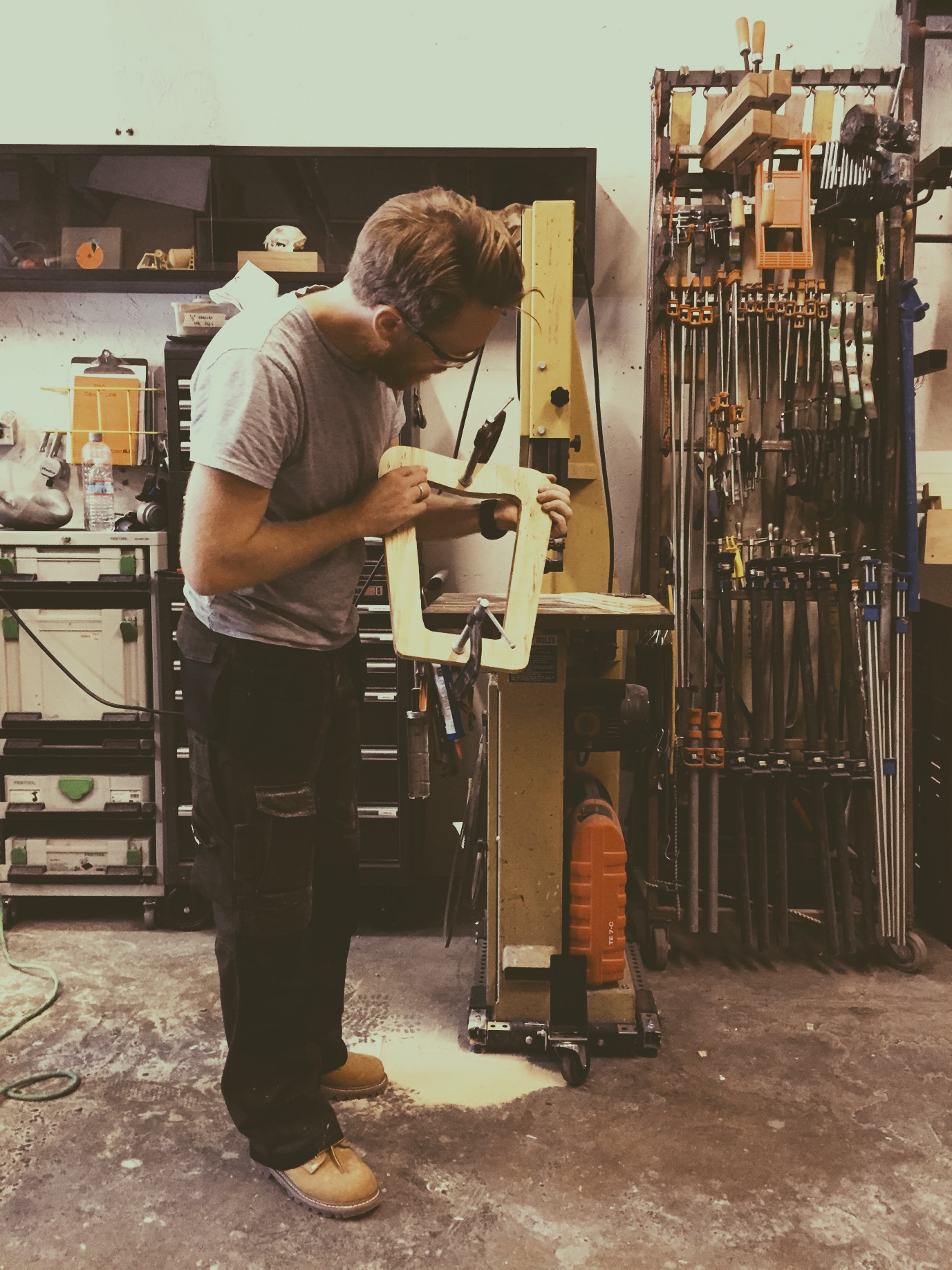
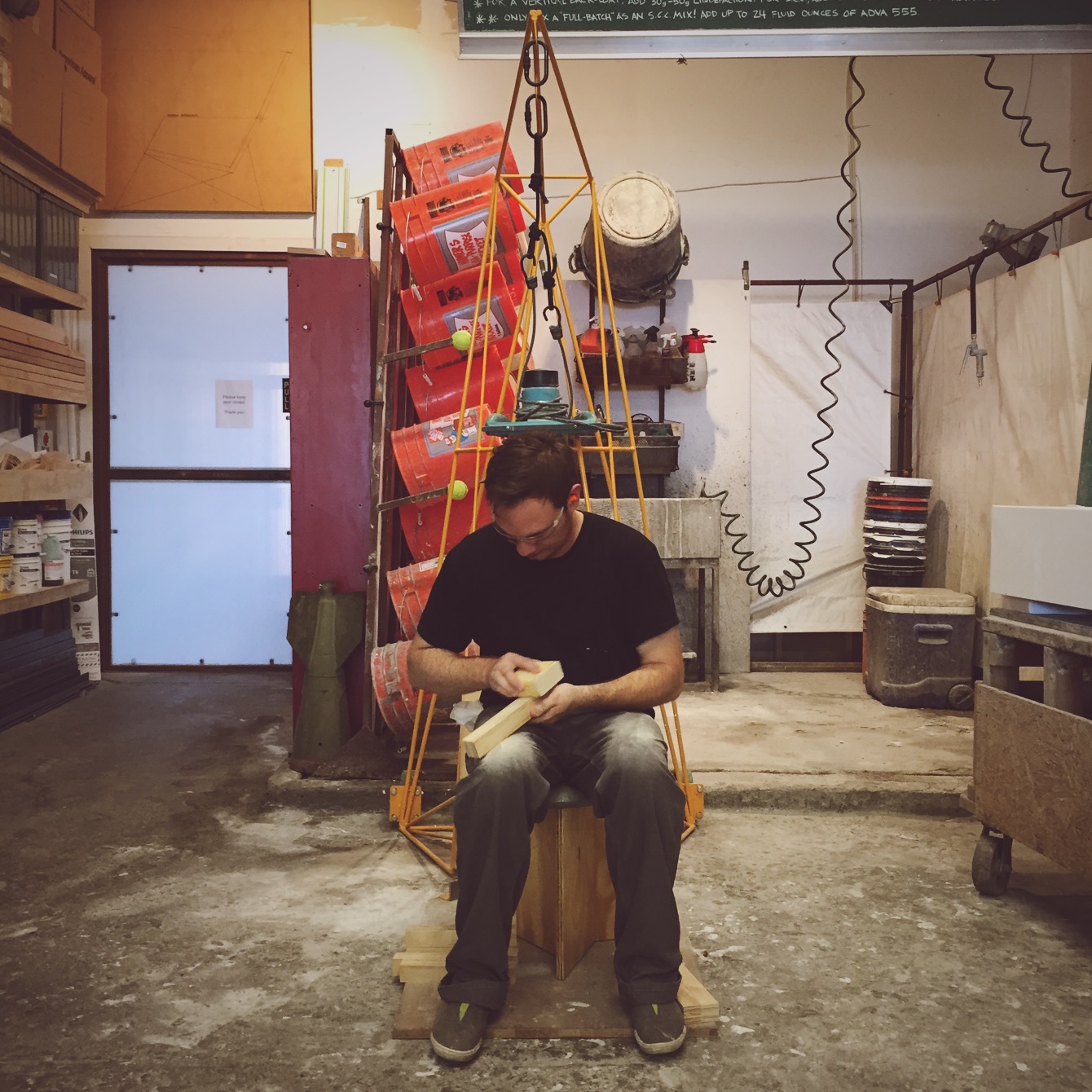
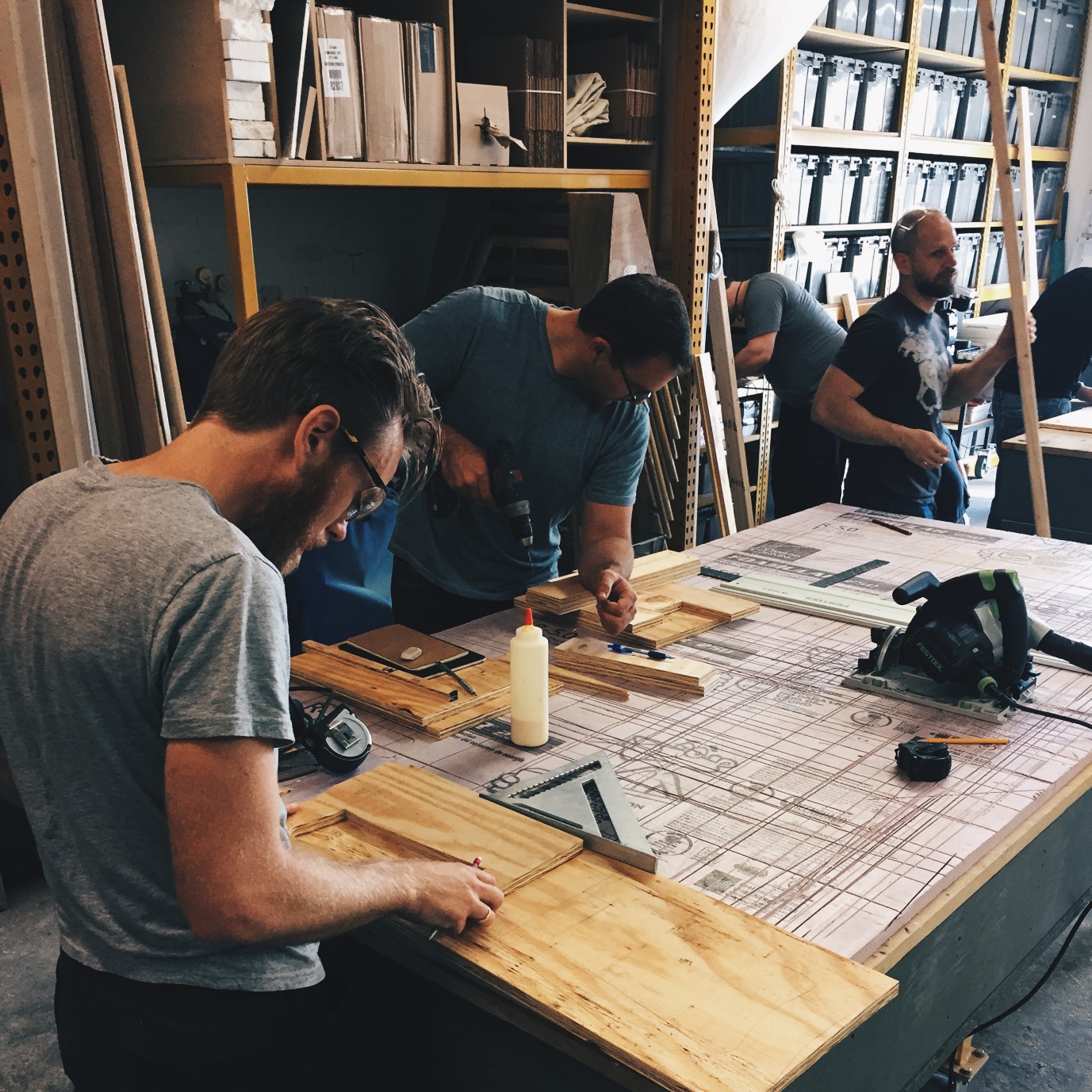
That's a wrap! The June 2015 Fabric-Forming + GFRC Sink Workshop is in the books!
Sometimes we get a class of characters - that was the case with the June 2015 Fabric-Forming + GFRC Sink Workshop. It was one of the most fun classes I have taught because every attendee was engaged, happy and enjoyed getting to know their fellow concrete brethren. I hope we get to cross paths with these guys again!
Another Great Class Is In The Books
Class Photo: August 2014 2.5 Day Fabric-Forming + GFRC Workshop
Today we wrapped up the last 2.5 Day Fabric-Forming + GFRC Workshop for 2014, and I must say, it was a fine class. The attendees came up with great designs, and did an excellent job executing them. We're honored that they chose Concrete Design School, and we look forward to their continued success.
The Importance of Good Design
Brandon Gore accepting the award for 'Best Furniture Design' at Dwell on Design
Concrete is an amazing material. Unlike other artisan materials, concrete is created by the craftsman. What do I mean by this? Think about it - all other materials are equal in the hands of the expert, they are all preexisting. Wood is wood, metal is metal, Corian™ is Corian™, granite is granite, but concrete alone is a material that is made, and each person makes it slightly differently. This is really quite amazing and often times maddening, but there is beauty and discovery in chaos.
Unlike other slab/sheet products (wood, metal, stone, etc.), concrete is amorphous. This is the genesis of limitless design, which is a blessing and a curse. I have said it before and I'll say it again, "just because you can doesn't mean you should." With great power comes great responsibility, and it is the duty of the concrete craftsman to exercise design restraint.
Design is the primary purpose for which a client purchases a concrete product. Sure, the imperfect natural aesthetic is great, but a blob of concrete on the ground isn't alluring. It's the shape you coax the concrete into that gives it value, meaning and desirability.
Our name, 'Concrete Design School' is not by accident. The elements and processes of great design are a key focus of our training. There is a method to the madness, and we'll share our insights with you.
Defending Mediocrity
The following is an essay written by Jeremy French in January of 2012. It was in response to the state of the union of the concrete industry, and it is even more relevant 2 years later. I highly urge you to read this in its entirety, and take to heart the messages.
- Defending Mediocrity -
Over the past few months I have been shocked on a few occasions about how quickly mediocrity is defended in our community. When discussing the values around what we make, whether related to what the cost should be or how intellectual property is valued or how someone's designs and visions are perceived and valued. It doesn't take long before the trumpet of 'it's not a big deal' starts sounding off.
"Value has value only if its value is valued."- Bryan Dyson, former CEO of Coke.
It doesn't bother me that there are different opinions, or different markets, or different approaches. It does bother me when we defend our right to devalue what we do, the things we make, the ideas we have. Why do we need to defend mediocrity? So everyone can feel comfortable, so you can feel like everyone should be able to do this, because we really don't value what we do, WTF?
Back when this industry was in it's early days, information was painfully difficult to come by. Information was naturally valued because of the amount of effort that it took to get it. If you wanted to figure out how to do something, you had to go to the local hardware store, buy $500 worth of crap that you would never use again, spend days trying to make that $500 worth of crap do what you had spent countless nights obsessing about, fail miserably for weeks, spend money you didn't have, fail some more, and then finally hit a stroke of luck thousands of dollars and weeks into your endeavor just so could successfully glue a little BS trinket into someones vanity. Now you can hop on a forum and you will have 20 people fight for the right to tell you how they had figured out how to make something work. You spent 5$ on some Starbucks and some tissues and you have your answer. It is no wonder that so many don't see REAL value in that information.
Am I saying that this format of exchanging information is bad? Yes and no. If the information isn't valued, if the elders of this medium aren't given respect on simple principle, if people start to feel like they should magically be a professional overnight, if people think this should be given them as a matter of birth rite, etc etc, then yes this format is going to die, but not before it wrecks the value of this medium.
On the other hand, if this becomes a tool to genuinely elevate the medium, as well as the business of the medium, then it has potential to create something real for us to hang our hats on. In order for this to happen, there has to be a principle by which we all stand, it must be paramount to all other opinions, and it must be defended above all else. That principle is about protecting and elevating value for the medium. It means that we don't defend the right to be mediocre, or morally ambiguous, or the right to short sell ourselves for a quick dollar at the expense of the long term viability of our chosen profession. It means that the next time someone says "I can only charge 24$ per foot because I live in the arctic circle, and I have only made a few tiles in my igloo." we don't say, "Yeah buddy, you are right, if that is all you can get then that must be what it is worth." We say instead, "here are some options you have to charge a fair value for your efforts", or "get a job shoveling snow, and stop making it more difficult for those who have paid their dues."
In regards to the Value (cost) of what we do.
What you charge in the Arctic Circle has an impact on what I can charge in Georgia. You can say it isn't so, go ahead and defend your right to mediocrity, or you can see that in the age of the internet all you have to do to see what the price is in the Arctic Circle is a simple Google search. The next thing you know, a seed is planted for a potential client, and then my job of selling them on the idea of the real value of what we make has been made exponentially more difficult. Simple cues play a tremendous role in perceived value, and once those simple ideas are planted, then it is very difficult to uproot that idea.
The next time we are discussing this, perhaps we can collectively agree that what we all want is to be able to charge more for what we do. Instead of fighting for the right to charge $50 per foot, maybe there can be a more thoughtful discussion on methods for being able to charge $150 per foot. Not everyone can come out of the gates making work of the quality that deserves that price, but it can certainly be a goal to get there, instead of having the right to stay mediocre.
Am I saying that everyone should charge $150 per foot, not necessarily. I charge as little as $35 per foot in certain situations (a price that means something eventually retails at $135 per foot). The idea is that we understand how our decisions play a role in the perceived value of the product as a whole. It is important that we value our time, our skills, our intellectual property, our craft. The final dollar amount will be different for everyone, but the value should be equally sacred no matter where you are.
In regards to the value of Intellectual Property.
Understanding is not free. Intellectual property (IP) is what drives this thing forward. How someone creates a mold, or casts a piece, or makes a color is something that cost them time and money to figure out. You want to elevate the industry? You don't elevate the industry by asking someone to give you that information for free. You don't elevate by saying the only value of your IP is in you giving it to me for free so my life is easier. If you want to elevate, then you pay the price, you offer money or respect or whateverthefuck gives value to IP. If you give the people who are coming up with solutions the tools they need (money) for their efforts, then they will be supported in coming up with more solutions making your life and craft even better.
Intellectual Property is the most valuable thing in the new world economy. It is what our entire economy will be built on in the future. Don't undervalue this most precious resource.
In regards to Design.
A finished concept is a reflection of a process. What makes a beautiful thing beautiful is the story behind it. If the process is not there, then the story is not there, then the piece is empty. That is a simple version of why you don't go out of your way to publicly copy someone else's creation, it is not yours and it is empty. I feel like it is a disregard for the true beauty of a piece to try and recreate it. It is a disrespectful thing because it disregards the complexity of the process of creation. It is Milli Vanilli. We need less Milli Vanilli and more Miles Davis.
When Picasso says that good artists copy, but great artists steal, he was referring to the spirit of a piece. Great artists take the process that drove a concept and take it to it's next level in the progression. The story then becomes more complete, and the craft is elevated. The finished piece will resemble the original in little or no ways to outward appearance, but they will be tied in their spirit.
The great Jazz of the 50's and 60's had a creative movement that is rarely rivaled. People took a movement or a phrase and took it to the next level. Sometimes phrases from one guys work were used, but more often than not it was done in a way that said "I heard you man, that was worth repeating so that I could follow it with this thought." They were talking to each other, they were telling a story, and they were respecting each other. If someone lazily repeated something because they weren't talented enough to tell their own story, or they we just too lazy, they weren't given any respect.
Come up with your own stuff people! Don't go defending the right to be lazy or unoriginal. Fight to push the creativity along, it is what makes our medium special. If you are not any good at design, that is not a problem but a solution in disguise. Go find someone that is good with design, get involved with them, explain your medium, develop a relationship because that what good businesses are built on. I am not saying that being original is easy, in fact sometimes it is painfully difficult. Something being difficult is not an excuse to just not do it. Don't defend being mediocre in the creative process just because it is hard. Defend creativity, it is sacred. Defend what is good with what we do, stop making excuses for what is not good and what is lazy and near sighted.
We set the tone for how this thing moves forward. If we defend and nurture mediocrity, then we sow mediocrity. If we say that we want to see what is elevated, what is truly creative and valuable, then that is what will come of this community. Stop protecting people from hurt feelings and silly fears. Push the new guys to get better at what they do, to tell their own story, to bring something real to the party instead of something they are regurgitating from a discussion that is 2 years old for which they have no real experience. Stop coddling each other and start pushing for something that is good and real. If we say, "yeah we want to see your pictures of how you hacked someone else's gig", then that is where we set the bar. Why set the bar at the level of mediocrity and stand for what are freshman chops? Why stand for crap? Why not say "we want to see you do something special, or just keep it to yourself".
If you are new, take the cotton out of your ears and put it in your mouth. Develop your own voice before you start talking all the time. Miles Davis said to Coltrane "Man, you have to cut your solo off". Coltrane said "I just don't know how to end the phrase". Miles told him "You take the F*cking horn out of your mouth." Until you have something good to bring to the party, take the horn out of your mouth. Am I saying this because I don't care, or I don't think you are valuable? Not really. I am saying if you are so busy talking, then you may miss the quiet moment of inspiration that puts you on the path of something brilliant.
This can be amazing guys and gals. It can also be a circle jerk. What's it going to be?
Where are we setting the bar?
Can we get over this need to make everyone feel special and get on with protecting the interests of those who are putting their soul on the line? Can we push the crap to the side and put on the pedestal real creativity? Can we stop defending mediocrity and push ourselves to something better?
- Jeremy French
Meet Erin
Erin brings over a decade of professional selling, project management and customer service experience to Concrete Design School. Currently employed as the Client Relationship and Project Director for Gore Design Co. and Hard Goods, she previously spent 7 years as a Design Consultant and Showroom Manager for a high-end, award-winning tile and architectural features showroom in Scottsdale, Arizona. She has worked extensively with architects, designers and end-users on multi-million dollar commercial and residential projects.
During your workshop at Concrete Design School she is available to discuss proven methods to pre-qualify and meet the needs of today's consumer, strategies to overcome price objections, tactics to prospect for clients and how to get your products specified on jobs.
Concrete is Hard - It's Harder if You're Stupid
I grew up watching John Wayne westerns with my grandfather. The characters he portrayed always resonated with me - they never minced words, and the one-liners were epic. A quote often attributed to John Wayne is, “life is hard - it’s harder if you’re stupid.” The same could be said of concrete. Concrete is hard, literally and figuratively, and it is most certainly harder if you’re stupid.
What do we mean by 'stupid.' For us, this refers to ignoring best practices; not precisely measuring ingredients, failing to cure properly, mishandling concrete during transport or install, using sealers destined to fail, not properly applying first-rate sealers, underbidding projects, over-promising expectations, and so on. We were probably the most stupid concrete company in our first years of business. We ignored what little we knew and went our own way, which only led to misery.
Luckily we learned from our mistakes, and so can you. It is our past pain that led to our successes because through suffering came understanding. Our training is derived from the lessons learned from doing things incorrectly and working through the issues until they were resolved. It is obtained through real-world experience. History does not have to repeat itself, you can shorten your learning curve, frustration, expense and heartache by attending a class at Concrete Design School.
“Tomorrow hopes we have learned something from yesterday.”
Glimpses of Gore Design Co. 06-17-2014
"Glimpses of Gore Design Co." is a new video series we launched that features vignettes of daily life in the studio. Concrete is what we do every day, and it's what we have done for more than a decade now. Experience matters when it comes to training. We hope you'll attend a class with us and learn from our successes as well as mistakes.
There ain't no such thing as a free lunch
TANSTAAFL
ORIGIN & MEANING
"There ain't no such thing as a free lunch" (TANSTAAFL) is a popular adage communicating the idea that it is impossible to get something for nothing. Uses of the phrase dating back to the 1930s and 1940s have been found. The "free lunch" in the saying refers to the nineteenth-century practice in American bars of offering a "free lunch" in order to entice drinking customers.
The "free lunch" refers to the once-common tradition of saloons in the United States providing a "free" lunch to patrons who had purchased at least one drink. Many foods on offer were high in salt (e.g., ham, cheese, and salted crackers), so those who ate them ended up buying a lot of beer.
TANSTAAFL indicates an acknowledgement that in reality a person cannot get "something for nothing". Even if something appears to be free, there is always a cost to the person, although that may be a hidden cost or an externality.
HOW TANSTAAFL PERTAINS TO CONCRETE
Training: Perhaps you've seen these "N/C (no charge)" training events held by product distributors? They rope you in with the word "free" and attempt to teach about a subject they have little to no experience with while using products they sell (with an emphasis on selling products). Can you see the value in that?
Videos: These days the first place most people search for information is via a search engine, which typically shows results for videos. The problem with these videos is that the people making them don't know what they are talking about. It's the blind leading the blind, but if you're new to the industry you don't know who doesn't know what they claim to know.
Products: Drug dealers have been using this tactic for millennia. Offer a sample, get them hooked and you have a customer for life, albeit a short one. The same is true with concrete. Anyone remember UV sealers? Buy a gallon of UV sealer and get a free light, or vice versa. You start using it, it looks great at first but then starts delaminating. You start chasing your tail, grinding off and reapplying more and more UV sealer until the customers quit calling and you are out of money. Your concrete company had a short life, but for that small span of time the company selling you the UV sealer was banking off of you. It all started with that offer for a free gallon of sealer or light. TANSTAAFL.
Forums: The experts in any industry don't spend their valuable time on forums freely giving away their hard-earned knowledge. So that begs the question, who are the "experts" doling out advice? I'd be very wary of any free information gained from a forum.
I have always known this philosophy to be true. You get what you pay for, if you shop at Harbor Freight you know what you're getting or you will learn very quickly. Low cost and free are red flags for bad quality, be it information or products.
If it was worth anything they wouldn't give it away.
Invest in yourself, invest in your business, invest in your future - learn from the professionals with the most experience. Purchase from the product manufacturers who have a long track record and a history of innovation. There ain't no such thing as a free lunch.
Photos from the June 2014 Fabric-Forming & GFRC Concrete Countertop and Sink Class
The June 2014 Fabric-Forming Sink & GFRC Concrete Countertop training event just wrapped up, and we wanted to share a few photos we snapped during the class. The next 2.5 day workshop will be in August, click here to learn more or to enroll.
Our Roots
Buddy Rhodes (left) and Brandon Gore (right) in San Francisco at Buddy Rhodes Studio, ca. 2004
Buddy Rhodes (center), Brandon Gore (left), and Jon Schuler (right) at World of Concrete in Las Vegas, 2014
As we prepare to receive attendees of the May 6-8, 2014 2.5-day Fabric-Forming Concrete Sink + GFRC Workshop, we reflect back on our beginnings.
I (Brandon Gore) have only taken one concrete related class, and that was with Buddy Rhodes of Buddy Rhodes Studio many years ago. Buddy's shop was huge, employees were everywhere, mixing, placing and polishing concrete; it was as if he and his studio were the Willy Wonka of concrete.
Thinking back, I can recall the excitement and possibility of this burgeoning industry; it's as palpable now as it was then. Concrete sinks and countertops were just coming onto the scene. GFRC hadn't become the standard and fabric-forming was unexplored. Anything was possible, which was good and bad. Decorative and interior architectural concrete hadn't gained a foothold yet, so the thoughts of failure were visceral - could a small studio make it? That was uncharted territory.
A decade later and that question has been answered, and it is a resounding 'YES!' Small studios can not only survive but thrive. The materials, tools, technologies and processes have gone through a quantum leap since then, but the entrepreneurial ethos remains a constant. The sustained heartbeat of this industry comes from the artisans and craftsman that care deeply about the quality of each and every piece they create by hand. It is in this spirit that we welcome the attendees of the May 6-8th workshop, and we hope to see them grow along with the industry in the coming decade.
Fighting the Burn
Steel + Wood Sculpture by Brandon Gore, ca. 2008
Concrete countertops and sinks are a lot of fun to make, but concrete veterans often time struggle with staying excited. They get stuck in a rut and lose sight of the magic that comes from creativity and design. How can experienced concrete craftsmen stay motivated and enthusiastic? One way is by attending a training course at Concrete Design School. Learning a new method or approach can reignite passion.
Don't get burned out. Get your concrete mojo back. Get energized. Get the best training available - Concrete Design School.
How to Transport Heavy Concrete / An awesome class by Michael Karmody
Casting a large piece of concrete is one thing, moving it is another story entirely. The battle begins a few days after casting. You stare at the behemoth before you, racking your brain trying to figure out the most effective and safe method of flipping it. If you happen to get it flipped without damaging it, your equipment or person the next phase begins - designing, building and transferring the concrete to a transport cart. Once on the cart you have to get it into a truck, secured, moved, unloaded and finally placed. Ah yes, placement of this concrete titan, most likely with the client and other onlookers watching, judging, suggesting; the pressure is immense.
Michael Karmody can help. In this premiere workshop, Michael will take you through the thought processes, strategies, methods and mechanics of accomplishing the above described tasks in style and with panache. Sign up today and slay your concrete leviathan.
What is Concrete Design School?
GFRC training attendee learning how to properly spray a face-coat for a concrete sink
Concrete Design School is the continuation and progression of training workshops that Brandon Gore of Gore Design Co. and Hard Goods has held since 2005. The objective of these workshops is to elevate the industry, to raise the bar of what can be done with concrete and increase expectations from the public at large as to what good concrete should be. Over the last decade we have taught hundreds of individuals, many going on to launch award-winning leading decorative concrete companies. We look forward to the future of concrete!


